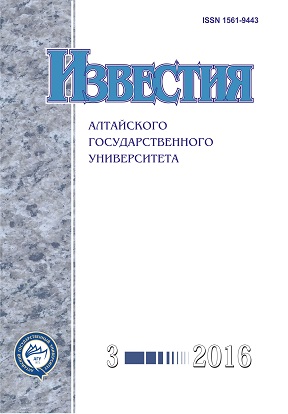Forensic Characteristic of the Judicial Investigation in the Structure of the Standard Forensic Techniques of the Pretrial and Judicial Investigation of Criminal Cases of Murder
Abstract
Currently one of the promising directions of criminology is the development of forensic guidelines for public prosecutors and judges with a view to their use in court. This area is still not sufficiently developed; the forensic science emphasizes the view about the limitation of the subject matter of criminology exclusively in the framework of the preliminary investigation. The article presents the points of view of leading Soviet and Russian scientists-criminalists made at different times about the possibility and the need to use forensic expertise in court. The article considers criminalistic description of judicial investigation, as the third basic component in building of forensic techniques of preliminary and judicial investigation on criminal cases about the murders. The author proposes the definition of the criminalistic characteristics, distinguishes its structural elements. The formulation is given to the concept and classification is offered of the situations of judicial investigation as the central element of criminalistic characteristics of a judicial investigation of criminal cases about murders.DOI 10.14258/izvasu(2016)3-21
Downloads
Metrics
References
Цыпкин А. Судебное следствие и криминалистика // Социалистическая законность. - 1938. - № 12.
Ароцкер Л.Е. Использование данных криминалистики в судебном разбирательстве. - М., 1964.
Колдин В.Я. Теоретические основы и практика применения идентификации при расследовании и судебном рассмотрении уголовных дел : автореф. дис.. д-ра юрид. наук. - М., 1970.
Мазунин Я.М. О соотношении тактики предварительного и судебного следствия // Известия высших учебных заведений. Серия: Правоведение. - 2004. - № 5.
Колбая Г.Н. Соотношение предварительного следствия и судебного разбирательства. - М., 1975.
Кудрявицкий А.С. Оперативно-розыскное и криминалистическое обеспечение судебного разбирательства дел о преступлениях, совершаемых организованными преступными сообществами : автореф. дис.. канд. юрид. наук. - Тюмень, 2011.
Кореневский Ю.В. Криминалистика для судебного следствия. - М., 2002.
Баев М.О. Стратегические принципы тактики защиты по уголовным делам // Криминалистические аспекты профессиональной защиты по уголовным делам : сборник статей. - Екатеринбург, 2001.
Гавло В.К. Актуальные проблемы поисково-познавательной деятельности в суде. - Барнаул, 2000.
Carson D. Investigative Psychology and Law: Towards Collaboration by Focusing on Evidence and Inferential Reasoning // Journal of Investigative Psychology and Offender Profiling. - 2011. - № 8.
Izvestiya of Altai State University is a golden publisher, as we allow self-archiving, but most importantly we are fully transparent about your rights.
Authors may present and discuss their findings ahead of publication: at biological or scientific conferences, on preprint servers, in public databases, and in blogs, wikis, tweets, and other informal communication channels.
Izvestiya of Altai State University allows authors to deposit manuscripts (currently under review or those for intended submission to Izvestiya of Altai State University) in non-commercial, pre-print servers such as ArXiv.
Authors who publish with this journal agree to the following terms:
- Authors retain copyright and grant the journal right of first publication with the work simultaneously licensed under a Creative Commons Attribution License (CC BY 4.0) that allows others to share the work with an acknowledgement of the work's authorship and initial publication in this journal.
- Authors are able to enter into separate, additional contractual arrangements for the non-exclusive distribution of the journal's published version of the work (e.g., post it to an institutional repository or publish it in a book), with an acknowledgement of its initial publication in this journal.
- Authors are permitted and encouraged to post their work online (e.g., in institutional repositories or on their website) prior to and during the submission process, as it can lead to productive exchanges, as well as earlier and greater citation of published work (See The Effect of Open Access).








